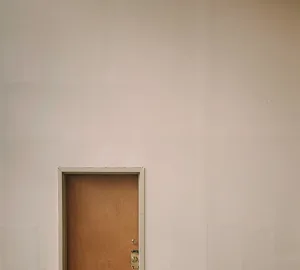6 minute read
If you are in debt at the moment, you may think that you are never going to be able to own your own home. While there is a lot of hard work ahead, this does not mean you won’t be able to own your own home. You simply need to plot the route to the top! In this blog post, we will help you to get there by providing some advice to help you out of the situation you’re in at the moment. Buying a house is a major financial decision that requires careful planning and consideration of factors such as your budget, location, and personal preferences.
Are you currently being visited by bailiffs?
If you are unfortunate enough to have been visited by the bailiffs then don’t panic, it is essential to know your bailiff’s rights before you proceed to do anything, they may be a lot more help at hand then you think. A lot of people think that once they have been visited by the bailiffs that is it – it is all doom and gloom from here onwards, there is nothing you can do. But for most situations that couldn’t be further from the truth.
So first and foremost it is essential to distinguish what exactly a bailiff is. A bailiff is basically an individual whose job it is to collect a debt for a creditor. They must have legal rights, in the form of a warrant, in order to be able to do this. A bailiff can come to you for a single debt or a whole host of debts. If you have multiple debts then the situation is a lot more complex and you will need professional aid and guidance. However, if you have been contacted by a bailiff for a mere single debt, then there are things you can do.
If you are reading this article then there is a chance that you have already had the bad experience of face to face contact with a bailiff. However, if you have not and you are simply interested and want to be prepared then the first thing you should note is that it is highly recommendable to not let the bailiff enter your house on their initial visit. They may catch you off guard and before you know it they are in your living room taking your stuff away. Close the door, yes they will probably come back, but it will give you time to breathe, think about the situation and consider your options. After all, a bailiff is legally not allowed to force themselves into your home. They aren’t allowed to push past you or make an abrupt and what could be considered a potentially threatening or violent entrance. So if you refuse them entry, they can absolutely under no circumstances force themselves through the door.
Furthermore, when a bailiff knocks on your door you should always ask for their identification before allowing them to proceed. After all, you never know who could be trying to take payments from you on behalf of the creditor. In fact, it’s very easy for someone to pose as a bailiff and take your stuff if you do not ask for any form of ID. If the person cannot provide any identification then simply do not let them inside.
These are your basic rights to consider in the chance that a bailiff should appear on your doorstep for the very first time. If you consider this advice then you will find yourself some vital breathing time. But remember, for any additional help please seek professional help.
Paying off your debts
There is no getting away from it; you will need to pay off your debts before you are able to purchase your own home. The sooner you get started with this, the quicker you will pay off your debts. When it comes to paying off your debts, you need to make sure that you are paying the minimum payment on your cards every month. Once you make the minimum payment, any money that is left should be used to pay off your most expensive debt. This is the debt that has the highest interest rate and is, therefore, costing you the most money every month.
If you are not able to meet your minimum card payments every month, you need to seriously consider your options. A lot of people decide to go to one of those companies that will pay off their debt for them, and instead, they make small, reduced payments to the company in question. However, if you do this, you’re writing off some of your debt, and this sort of agreement will go on your credit file for seven years. This will severely harm your chances of ever getting a mortgage within the seven-year time frame, and so this is only an option that should ever be taken as a last resort.
It is worth talking to your family to see if there is anyone who could help you out of the situation and you pay them back instead. Perhaps someone would be willing to at least help you make your monthly payments each month?
Figure out how much you need for a mortgage
The final step is to think about how much you’re going to need to save to get a mortgage. Look into all property options, from help-to-buy governmental schemes to resale HDB properties. There are many different options available today, so make sure you explore all of them. You may need to save a bigger deposit to increase your chances of getting a mortgage. This depends on the condition of your credit file! If you’re struggling to know what options are going to be open to you, don’t be scared to hire a mortgage broker. That is their job, and we are sure they have seen all sorts of credit files! You can also get free advice, so there is no need to pay for it.
To conclude, if you’re currently in debt, this does not mean that your property dream is over. Use the information provided above to try and get on the ladder.






